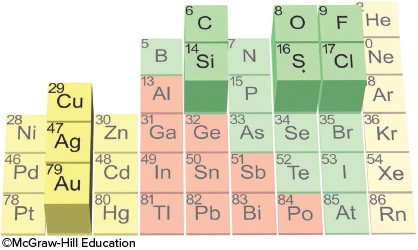How does an atom become a positive ion? A negative ion?
What will be an ideal response?
A positive ion has lost one or more electrons, leaving the positively charged protons in the nucleus without a balancing negative charge on the particle, resulting in a positively charged ion. A negative ion has gained one or more electrons, adding more negative charge to the orbital shells, resulting in a negatively charged ion.
You might also like to view...
Squall lines most often form ahead of which of the following types of weather fronts?
A. cold-type occluded front B. warm-type occluded front C. cold front D. warm front
Most major cities are located away from rivers, lakes, or the ocean.
Answer the following statement true (T) or false (F)
What class of minerals form when the element Si is bonded with element O, as in the mineral quartz? 
A. oxides B. sulfides C. silicates D. carbonates E. halides
A hydrogen-oxygen fuel cell uses
A) hydrogen and water and generates electricity and oxygen. B) hydrogen and oxygen and generates electricity and water. C) carbon dioxide and water and generates electricity and hydrogen. D) hydrogen and water and generates electricity, oxygen and carbon dioxide.